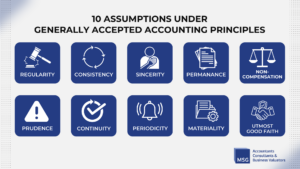NEW YORK, NY – January 22, 2024 -This month, MSG has added three members to its management team, all of whom will be working from its Rockefeller Center headquarters. Renil Thomas James: Manager – Valuation Analyst Renil James is a Certified Financial Analyst chartered by the CFA Institute. Prior to joining MSG, he led valuation teams at Economic Partners and Deloitte Touche. He has vast expertise in the valuation of business enterprises, intellectual property, intangible assets, goodwill impairment testing, & stock options. Lindsey Griffin: Director of Marketing & Client Relations Lindsey Griffin is a seasoned marketing professional. Prior to joining MSG, she was a marketing manager at a multi-disciplined marketing firm. Lindsey will direct the firm’s continued national reach to the legal community while developing and implementing the marketing strategy aligned with the firm’s goals. Reuben Gottlieb: Director of Forensic & Litigation Consulting Reuben Gottlieb is an attorney, certified public accountant, and has earned a master’s degree in forensic accounting. Prior to joining MSG, he has represented private equity firms, public companies, and their portfolio companies in cases involving failed mergers, fraud, and contractual disputes, including cases in the Delaware Chancery Court. _______________________________________________ Mark S. Gottlieb, CPA, PC (MSG) is distinguished as one of New York City and the Tri-State’s premier business valuation, forensic accounting, and litigation support firms. Our practice is devoted exclusively to providing attorneys and their clients with a diverse range of business valuation, forensic accounting, and litigation support services. With over thirty-three years of experience, […]
Blog
Category: News
We have distilled decades of experience at the intersection of law, business and finance into a suite of articles to help our clients make sense of business valuation, forensic accounting, and litigation support. Please visit our site regularly for our latest content.
MSG Adds Three Members to Its Management Team
Posted in News, on Jan 2024, By: Mark S. Gottlieb
ShareChanges to Rule 702: An Expert’s Perspective
Posted in News, on Dec 2023, By: Mark S. Gottlieb
Share
The admissibility of expert witness testimony serves as a cornerstone in modern legal proceedings, offering a lens through which complex, specialized knowledge can enlighten the trier of fact. As an expert witness for over 30 years, I have seen the standards for admissibility of expert testimony grow increasingly stringent over time. But who now bears the responsibility of ensuring an expert is fit to serve in that particular legal proceeding? The recent amendment to Rule 702 of the Federal Rules of Evidence, effective as of December 1, 2023, underscores a pivotal shift: elevating the burden of proof on the proponent of the expert witness and amplifying the role of judges in determining admissibility. See below for the amendment: Rule 702. Testimony by expert witnesses. A witness who is qualified as an expert by knowledge, skill, experience, training, or education may testify in the form of an opinion or otherwise if the proponent has demonstrated by a preponderance of the evidence that: a) the expert’s scientific, technical, or other specialized knowledge will help the trier of fact to understand the evidence or to determine a fact in issue b) the testimony is based on sufficient facts or data c) the testimony is the product of reliable principles and methods d) the expert has reliably applied the expert’s opinion reflects a reliable application of the principles and methods to the facts of the case This slight change in verbiage places a much clearer burden on the party offering the expert and makes […]
Mind the GAAP: 10 Basic Generally Accepting Accounting Principles for Attorneys
Posted in News, on Nov 2023, By: Mark S. Gottlieb
Share
“I know nothing about GAAP and I’ll leave it to my accountants.” said Donald Trump Jr. in court yesterday, testifying in the ongoing civil case against former president Donald Trump. GAAP, according to the Financial Accounting Standards Board (FASB), stands for “Generally Accepted Accounting Principles.” GAAP represents a common set of accounting principles, standards, and procedures used in the United States for financial reporting. GAAP encompasses a wide range of rules and guidelines related to accounting, financial reporting, and disclosure. These principles guide how companies prepare their financial statements, including the balance sheet, income statement, and cash flow statement. In litigation cases involving financial fraud or misrepresentation, understanding GAAP requirements provide important context for building and arguing the case. Knowing where GAAP was violated or misapplied can reveal intent and liability. Current principles are based on a number of underlying assumptions. Although these points aren’t codified, they represent generalized assumptions and apply to most financial statements: Regularity – Transactions should be supported by verifiable documentation such as invoices or receipts, ensuring a robust audit trail. Consistency – Consistent accounting treatments and methods must be applied across reporting periods, with any unexplained changes warranting scrutiny. Sincerity – Financial reports must genuinely represent the company’s actual performance and position, avoiding biased estimates and subjective interpretations. Permanence – It is crucial to assume reasonable business continuity rather than liquidation, and any concerns about viability should be thoroughly investigated. Non-Compensation – Assets and liabilities should be treated independently, without offsetting against each other, except […]
Home Office Deduction Considerations During COVID-19
Posted in Economic Damages, on Jan 2021, By: Mark S. Gottlieb
ShareThirty years ago, when I was a real accountant (haha), January was one of the most hectic months of the year. The preparation of annual payroll tax returns marks the quiet beginning of tax season. You should now start to receive W-2’s, 1099’s, and other tax forms to be set aside for the preparation of your 2020 individual income tax return. Many of our regular readers are now working from home on either an intermittent or permanent basis. For those of you in this category, you may be able to take advantage of the employee home office deduction. In the past, the standards for deducting home office use have proven notoriously prohibitive. Pursuant to the 2018 Tax Cuts and Jobs Act, requirements for W-2 wage earners clearly stipulate that for its costs to qualify, a given home office must: Be used at the convenience of the employer Constitute a specifically allocated area used expressly for work-related purposes and Have space for storing work-related materials. There are of course numerous other requirements, but historically these have proven sufficient barriers for many remote employees. But since the advent of COVID-19, two novel legislative pathways have opened up: Section 139 (Disaster Relief Payments) and Section 165 (Losses) The primary purpose of this blog post is to briefly discuss both of these two sections of the Internal Revenue Code. Section 139 (Disaster Relief Payments) Section 139 provides that any funds an individual may receive as Qualified Disaster Relief Payments cannot be included in […]
It seems like a lifetime ago that I sat down at my desk with a pile of folders ready to attack “tax season”. Perhaps it was. It’s been almost 30 years since I moved to be “exclusive” with business valuation, forensic accounting and litigation support. Although I am no longer routinely prepare income tax returns, I still keep up with the tax code – for no other reason than to be fluent when asked to lecture at various legal conferences or provide expert testimony. So, in the season of giving, I thought I would provide some thoughts regarding a few selected tax issues you should consider before the end of the year. Year-end tax strategies for accrual-basis businesses The last month or so of the year offers accrual-basis taxpayers an opportunity to make some timely moves that might enable them to save money on their 2018 tax bills. The key to saving tax as an accrual-basis taxpayer is to properly record and recognize expenses that were incurred this year but won’t be paid until 2019. Doing so will enable you to deduct those expenses on your 2018 federal tax return. Common examples of such expenses include commissions, salaries and wages; payroll taxes; advertising; and interest. Also look into expenses such as utilities, insurance and property taxes. You can also accelerate deductions into 2018 without paying for the expenses in 2018 by charging them on a credit card. (This works for cash-basis taxpayers, too.) In addition, review all prepaid expense accounts […]
Mark S. Gottlieb, CPA, a premier business valuation, forensic accounting, and litigation support firm, recently launched a new custom website.


